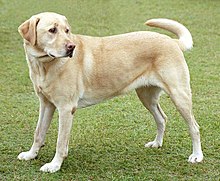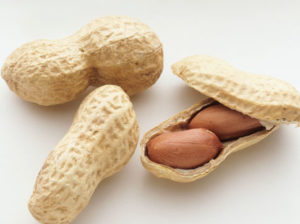 Peanut allergies can be life-altering and life-threatening. But in the past year there have been welcome developments in both preventing peanut allergies and in treatment of peanut allergies in children.
Peanut allergies can be life-altering and life-threatening. But in the past year there have been welcome developments in both preventing peanut allergies and in treatment of peanut allergies in children.
The latest medical advice to prevent peanut allergy is to regularly feed tiny amounts of pureed peanut products to babies before their first birthday. Even as early as the 4th month! This is the total opposite of the old advice for preventing peanut allergies, which was to avoid, avoid, avoid giving peanut products to babies. Oops.
Experts say this method of early introduction, and frequent feeding of small amounts of the food to babies, works best for preventing the development of peanut and egg allergies. [But even with this method, some will eventually develop the food allergies.]
What is a "small amount" of peanuts that should be fed the baby? Guidelines are: "Eight grams of peanut butter (1 heaped teaspoon or 1.5 regular teaspoon) or 17 g of peanut puffs should be consumed at least twice weekly to protect against peanut allergy." However, note that this intervention does not treat peanut allergy. Instead, it is a way to try to prevent a peanut allergy from developing in young children.
But what about older children who already have peanut allergies? What can be done? The US Food and Drug Administration (FDA) recently approved the first ever oral immunotherapy to treat peanut allergies in children between the ages of 4 to 17 years. However, the goal of the therapy is to make children less sensitive and to decrease their allergic reactions. They are still allergic, but less so. For example, after 1 year of treatment - about 2/3 of the kids were able to tolerate 600 mg of peanut protein. Unfortunately, the other third could not.
But here too, continued exposure is important. Researchers found that after 1 year, those who could tolerate the peanut protein have to continue ingesting tiny amounts of peanut. If they stop - the children will lose their tolerance within 2 months.
Treating peanut allergies. From March 2, 2020 article in Medscape: Treating Peanut Allergy With Oral Immunotherapy: Insights From an Insider
Preventing peanut allergies. From August 28, 2019 article in Medscape (the medical site): Pureed Peanuts Advised for Infants to Stave Off Allergy
Feeding pureed peanut products regularly to babies before their first birthday could reduce their risk of developing peanut allergies later on, doctors advise. ...continue reading "Preventing and Treating Peanut Allergies In Children"

 The evidence is growing. Another
The evidence is growing. Another 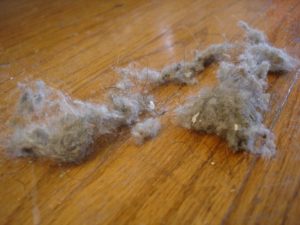 Want to prevent your children from having allergies or asthma? A recent study adds support to increasing evidence that growing up on
Want to prevent your children from having allergies or asthma? A recent study adds support to increasing evidence that growing up on  Study after study is finding that having pets in early childhood or living on a farm with lots of exposure to animals is associated with a lower incidence of allergies. Pets with all their "germs" (bacteria and other microbes) appear to have beneficial effects on children's developing immune systems. One
Study after study is finding that having pets in early childhood or living on a farm with lots of exposure to animals is associated with a lower incidence of allergies. Pets with all their "germs" (bacteria and other microbes) appear to have beneficial effects on children's developing immune systems. One 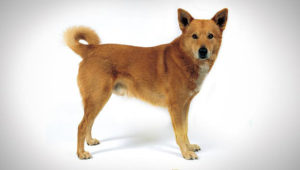 More research supports that being exposed to pets during pregnancy or in the first months of life changes the gut bacteria, and in a way that is thought to be beneficial. The researchers found that infants exposed to pets prenatally or after birth (or both) had higher levels of two microbes that are associated with a lower risk of allergies and obesity. The two microbes are Ruminococcus and Oscillospira, but in case you're wondering - they are not (yet) available in probiotics
More research supports that being exposed to pets during pregnancy or in the first months of life changes the gut bacteria, and in a way that is thought to be beneficial. The researchers found that infants exposed to pets prenatally or after birth (or both) had higher levels of two microbes that are associated with a lower risk of allergies and obesity. The two microbes are Ruminococcus and Oscillospira, but in case you're wondering - they are not (yet) available in probiotics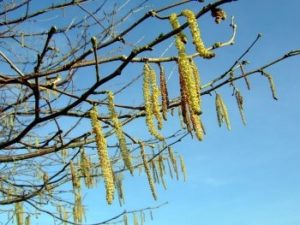 Could this be true? Probiotics for seasonal allergies? A
Could this be true? Probiotics for seasonal allergies? A 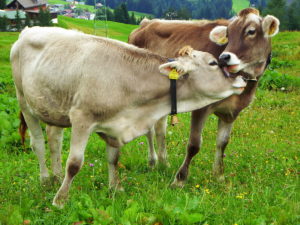 Earlier posts discussed research that showed that farm and animal (pets such as dogs) exposures in the first year of life is protective against allergies and asthma (lowers the risk of developing them).
Earlier posts discussed research that showed that farm and animal (pets such as dogs) exposures in the first year of life is protective against allergies and asthma (lowers the risk of developing them).  Newly published research found that children who are thumb-suckers or nail-biters are
Newly published research found that children who are thumb-suckers or nail-biters are 